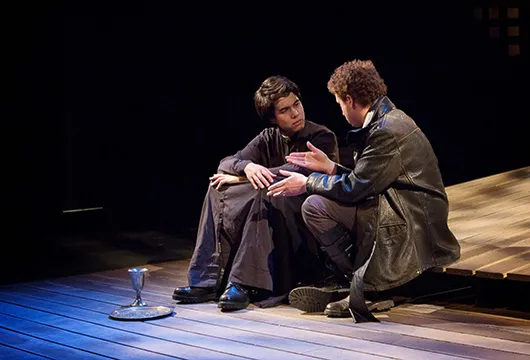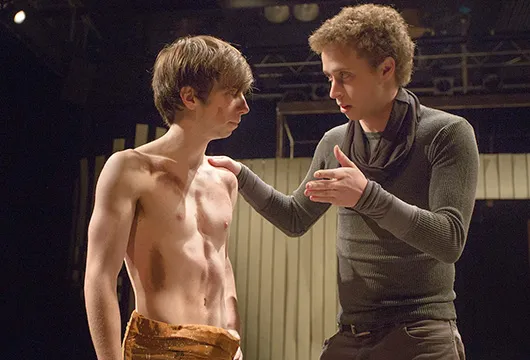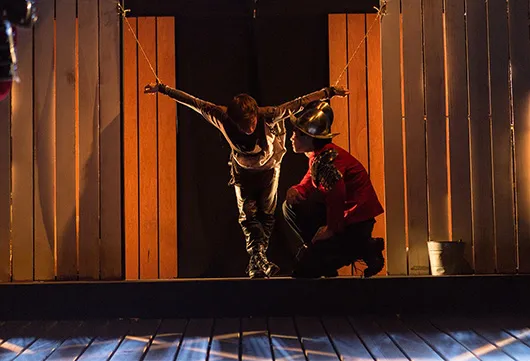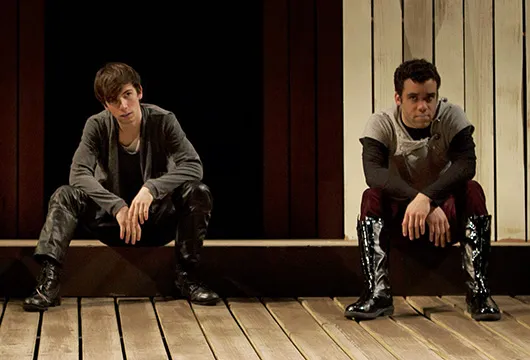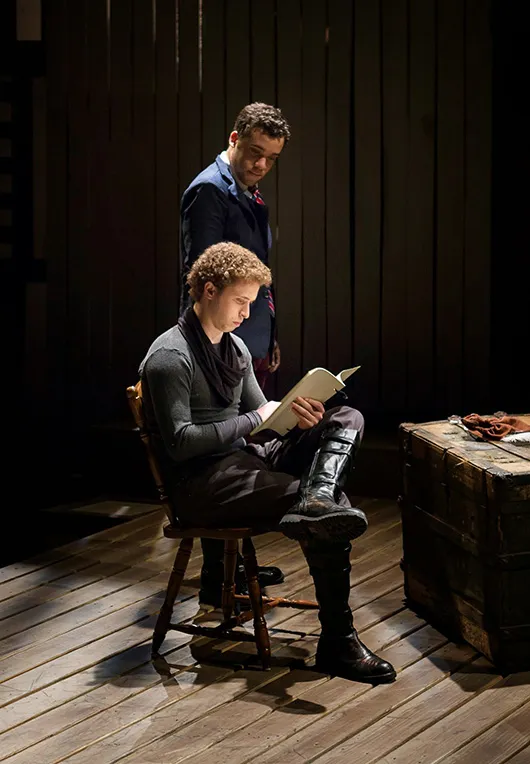EQUIVOCATION
Honors Directing Thesis
Remember, remember, the 5th of November
The Gunpowder Treason and plot;
I see no reason why Gunpowder Treason
Should ever be forgot.
History has always been written by the victors. In Equivocation, a play by Bill Cain, this concept is explored to the full when it's imposed on the world's most widely-read historian: Shakespeare. Half Shakespearean drama, half Quentin Tarantino historical fiction, Equivocation starts with the premise: what if Shakespeare was contracted to write the official version of the Gunpowder Plot, and what if the Gunpowder Treason was all a government set up? Equivocation explores the ins and outs of English politics and religion during the reign of James I. When James inherited the throne he also inherited a mess of religious tension that stretched all the way back to King Henry VIII's decision to reject the authority of the pope and form the Church of England. Henry VIII made the practice of Catholicism High Treason, punishable by death. England remained Protestant until Henry VIII's daughter, Mary I, ascended to the throne. Mary restored England to Catholicism, earning herself the title of Bloody Mary through her systematic torture and execution of Protestants. At Mary's death, her sister Elizabeth I became queen and once again the country changed religion. Although Elizabeth I restored the Church of England, she was more tolerant than her predecessors. When Elizabeth passed away in 1603 and James VI of Scotland ascended the throne to become James I of England, Catholics were allowed to practice in peace. It was not until a year into James I's reign that he grew uneasy at the growing number of practicing Catholics and eager to satisfy the growing number of Purtians, he declared publicly his "detestation" of Catholicism and his commitment that England would remain a Protestant nation. This sudden loss of religious freedom caused a number of threats against his life by Catholic loyalists-most notably the Gunpowder Plot.
Robert Catesby was a devout Catholic whose father had been imprisoned for harboring a priest and Catesby was forced to leave his university to avoid taking the Protestant Oath of Supremacy. In 1604 Catesby organized a group of young men to plot to take down the Protestant-ruled government and return England to Catholicism. His plot was simple: the men would rent a house next to Parliament and tunnel through their basement until they were underneath the House of Lords. There they would light barrels of gunpowder and blow up the Parliament as it was in session, killing everyone inside. They chose Guy Fawkes to watch over the lit powder. On November 5th, 1605 they put the plot into motion.
The plotters' plans were foiled by an anonymous letter, received by a former member of the House of Lords and delivered to Sir Robert Cecil, the king's right hand man. Cecil organized guards to search Parliament where they discovered Guy Fawkes about to light the fuse. The news of the averted disaster made headlines throughout Europe and a vast manhunt was organized to find and punish the rest of the co-conspirators. The search for these men was used as an excuse to arrest and torture thousands of Catholics. Eventually all known members of the group were executed; including the Catholic priest, Henry Garnet, who had learned of the plot through confession.
Although we know a great deal about the Gunpowder Plot, the truth remains opaque. The author of the anonymous letter was never discovered, and many speculate that the plotters must have had assistance from within the government to have been able to get the barrels of gunpowder in without being seen. Ultimately the plot led to a further divide between Catholicism and Protestantism in England, and the actions of the plotters were used to excuse decades of Catholic prosecution and disenfranchisement.
Directed by Marta Roncada, Equivocation by Bill Cain was performed in the Frear Ensemble Theatre on Friday, March 21st at 8pm, Saturday March 22nd at 2pm and 8pm, and Sunday, March 23rd at 2pm. With Simon Bloch, Casey Ferrara, Cooper Harrington-Fei, Nathan Siegel, Elliot Weiser, and Morgan Williams. Set Design: Robert Klimowski, Costume Design: Rebecca Kanach, Sound Design: Adriano Shaplin, Lighting Design: Amanda Jensen, Dramaturgy: Madeline Charne, Stage Manager: Grant Torre.
